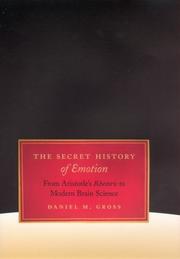| Listing 1 - 2 of 2 |
Sort by
|
Book
ISSN: 2352099X ISBN: 9789027203281 9789027262424 902726242X 9027203288 Year: 2019 Volume: 11 Publisher: Amsterdam Benjamins
Abstract | Keywords | Export | Availability | Bookmark
 Loading...
Loading...Choose an application
- Reference Manager
- EndNote
- RefWorks (Direct export to RefWorks)
Surprise is treated as an affect in Aristotelian philosophy as well as in Cartesian philosophy. In experimental psychology, surprise is considered to be an emotion. In phenomenology, it is only addressed indirectly (Husserl, Heidegger, Levinas), with the important exception of Ricœur and Maldiney; it is reduced to a break in cognition by cognitivists (Dennett). Only recently was it broached in linguistics, with a focus on lexico-syntactic categories. As for the expression of surprise, it has been studied in connection with evidentiality in languages that encode surprise morphosyntactically. However, how surprise is encoded in languages that lack an evidential morphosyntactic system has been largely unexplored.This book provides new insights into the dynamics of surprise based on a heuristic hypothesis tested against the investigation of time, language and emotion. It is intended to arouse the interest of a multidisciplinary audience keen on crossing the disciplinary borders of phenomenology, cognitive sciences, and pragmatics.The theoretical approaches adopted in this collection of articles rely on experiments and corpus data. They advance knowledge by building on robust empirical results coming from psychology, microphenomenology, linguistics and physiology.
Emotive (Linguistics) --- Surprise --- Emotions and cognition --- Emotions --- Discourse analysis --- Speech acts (Linguistics) --- Psychological aspects --- Affective meaning (Linguistics) --- Emotive meaning (Linguistics) --- Semantics --- Connotation (Linguistics) --- E-books --- Emotions - Psychological aspects --- Discourse analysis - Psychological aspects

ISBN: 9780226309798 9780226309804 0226309797 0226309800 1281957046 9786611957049 0226309932 9780226309934 Year: 2006 Publisher: Chicago, Ill. Bristol
Abstract | Keywords | Export | Availability | Bookmark
 Loading...
Loading...Choose an application
- Reference Manager
- EndNote
- RefWorks (Direct export to RefWorks)
Princess Diana's death was a tragedy that provoked mourning across the globe; the death of a homeless person, more often than not, is met with apathy. How can we account for this uneven distribution of emotion? Can it simply be explained by the prevailing scientific understanding? Uncovering a rich tradition beginning with Aristotle, The Secret History of Emotion offers a counterpoint to the way we generally understand emotions today. Through a radical rereading of Aristotle, Seneca, Thomas Hobbes, Sarah Fielding, and Judith Butler, among others, Daniel M. Gross reveals a persistent intellectual current that considers emotions as psychosocial phenomena. In Gross's historical analysis of emotion, Aristotle and Hobbes's rhetoric show that our passions do not stem from some inherent, universal nature of men and women, but rather are conditioned by power relations and social hierarchies. He follows up with consideration of how political passions are distributed to some people but not to others using the Roman Stoics as a guide. Hume and contemporary theorists like Judith Butler, meanwhile, explain to us how psyches are shaped by power. To supplement his argument, Gross also provides a history and critique of the dominant modern view of emotions, expressed in Darwinism and neurobiology, in which they are considered organic, personal feelings independent of social circumstances. The result is a convincing work that rescues the study of the passions from science and returns it to the humanities and the art of rhetoric.
Emotions -- Psychological aspects. --- Emotions - Social aspects - History. --- Emotions -- Social aspects -- History. --- Emotions -- Social aspects. --- Emotions (Philosophy) - History. --- Emotions (Philosophy) -- History. --- Emotions (Philosophy) --- Emotions --- Feelings --- Human emotions --- Passions --- Psychology --- Affect (Psychology) --- Affective neuroscience --- Apathy --- Pathognomy --- Philosophy --- History --- Social aspects&delete& --- History. --- Social aspects --- Emotions (Philosophie) --- Aspect social --- Histoire --- Social aspects. --- emotion, affect, feeling, mind and body, masculinity, femininity, gender, aristotle, neuroscience, science, philosophy, psychology, judith butler, sarah fielding, thomas hobbes, seneca, human nature, power, social conditioning, construction, hierarchy, empathy, stoicism, neurobiology, darwinism, rhetoric, scarcity, apathy, passion, passivity, war, hume, pride, compassion, adam smith, william perfect, david simple, cognition, nonfiction.
| Listing 1 - 2 of 2 |
Sort by
|

 Search
Search Feedback
Feedback About UniCat
About UniCat  Help
Help News
News